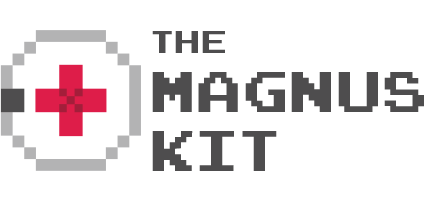Vanilla’s good, sure, but have you tried it with sprinkles? : Modding and Games
You can spend ten thousand hours working on a painting and the minute you show it to somebody, you’ll get a comment about how to improve it. Nobody is 100% happy with anything and I don’t know if that’s a bad thing. We certainly wouldn’t have mods without that little bit of “Hmmm, it needs something else…” Mods, for those who aren’t familiar, are user created changes to a game. Maybe you think that a weapon is overpowered, or that a questline should have different objectives, so you go into the games files and bam, you’ve got a different weapon or quest.
But what do mods do for a game? What are the benefits? What are the drawbacks?
When talking about mods, you’ve got to mention Doom. While not the first game to have mods, the Doom developers made it incredibly easy to modify the game, resulting in a flurry of creative activity. All of Doom’s data was packaged in files called WADs, or Where’s All the Data, making it possible to make whole new levels, weapons, and storylines.
The advent and expansion of the internet made it easier and easier to distribute and download mods, expanding the scene further. Doom also showcases one of the key benefits of mods; extending the shelf-life of a game. Doom was released in 1993, but people are still refining, ideating, and creating new mods for the father of the modern FPS. Brutal Doom, released in 2012 and updated at the end of 2015, is one such mod. It’s a total conversion of Doom, meaning that the authors of this mod created entirely new levels, changed up the weapons,
tweaked the mechanics, and came out with a whole new Doom. While not all modders are ambitious as those who created Brutal Doom, you can see how providing tools to your users can extend the life of your game far beyond the paltry 1-2 years that most games are active for.
Of course, you don’t have to look 20 years back to see how important mods are; you need only look back to last year’s Boston based adventure, Fallout 4. Bethesda, Fallout 4’s developer, has a habit of releasing modding tools to users fairly soon after the games have come out, going as far back as The Construction Kit which shipped with The Elder Scrolls III: Morrowind.
It’s no surprise that The Elder Scrolls and Fallout series have now become synonymous with mods, but the way that association is viewed might surprise you. While the mods are generally viewed in a positive light, there are those who feel that Bethesda are viewing the modding scene almost like they would view beta testers. By “relying” on the modding scene to fix common issues with their games, you could argue that Bethesda is pushing their work off onto their consumers. You just need to look at the top mods on any Fallout 4 modding site to see some form of the phrase “Unofficial Fallout 4 Patch.” Part of this is definitely due to the scope of Bethesda’s games, but it’s hard to imagine that the phrase, “the modders will fix it” is never uttered in the Bethesda office.
Even Fallout 4’s settlement system seems like something that modders would have implemented themselves at some point, though not at the scale that Bethesda did. Mods are great, but the perception that you’re relying on modders to fix your game is not.
There is one area where mods are not so welcome; multiplayer. Any sort of multiplayer game requires balancing, an incredibly time consuming and mercurial process to ensure that there’s more than one way to play. Mods are the antithesis of this, being changes that users create to satisfy a personal want. Maybe you think StarCraft’s Zerg are overpowered, but if you were to be able to mod the game to make them less so, and then play online, any Zerg player would have an immediate disadvantage.
There are other concerns around how your product is experienced as well. A recent example of the clash between mods and multiplayer is the forced shutdown of the legacy (meaning unaltered and unexpanded) World of Warcraft server, Nostalrius. Nostalrius was the largest WoW legacy server available until its April 2016 shutdown, with 800,000 registered users. It was not an issue of theft, like if the Nostalrius devs were charging for the use of the server, but more of an issue of branding. Games like WoW rely on expansions to keep people subscribed, to get new subscribers in the ecosystem, and to create a unified experience for all the players. WoW devs do have legal and arguably reasonable reasons for shutting down the server, though it did anger a lot of people. Because multiplayer games are never quite “finished” and because the experience is shared there’s not really any room for personal touches. Think what you will about that, but I don’t think it’ll be changing anytime soon.
Mods can extend the lifespan of a game, fix issues that the original developers missed, and create a stronger relationship between studios and gamers. They can also ruin the balance of a multiplayer game, dilute the vision of a particular project, and create more work for the dev team (got to build those tools out after all). It’s up to each individual developer whether to include modding support in their games, but it’s worth noting that the sales of any modable game are going to continue long after their non-modable counterparts.
I hope you’ve enjoyed this Topic Post. Please share it with anybody you think would like it. Or somebody you think would hate it. Punish your enemies and reward your friends in equal measure.
Don’t forget to follow TheMagnusKit on Facebook and Twitter.






